Inside Israel’s ‘torture’ jails where Palestinians held without charge tell of brutal treatment
A special investigation by chief international correspondent Bel Trew and Rateb al-Qaissy reveals allegations of brutal treatment of Palestinians in Israeli facilities including rape, torture, medical neglect and death. Israel rejects all accusations of wrongdoing
Handcuffed and cowering on the floor of a cell in a military base in southern Israel, the Palestinian found himself surrounded by five soldiers.
Armed with dogs, the five reservists allegedly kicked, punched, and stamped on the man as he lay on the ground.
Continuing their assault, they are accused of attacking him with Taser guns and sharp objects, sexually abusing him with these instruments.
At one point, the soldiers allegedly stabbed him so hard that they pierced his buttocks and anus. The brutal alleged assault left the man hospitalised with a punctured lung, cracked ribs, and a tear in his rectum, needing surgery for a stoma.
He had not been charged with any crime.
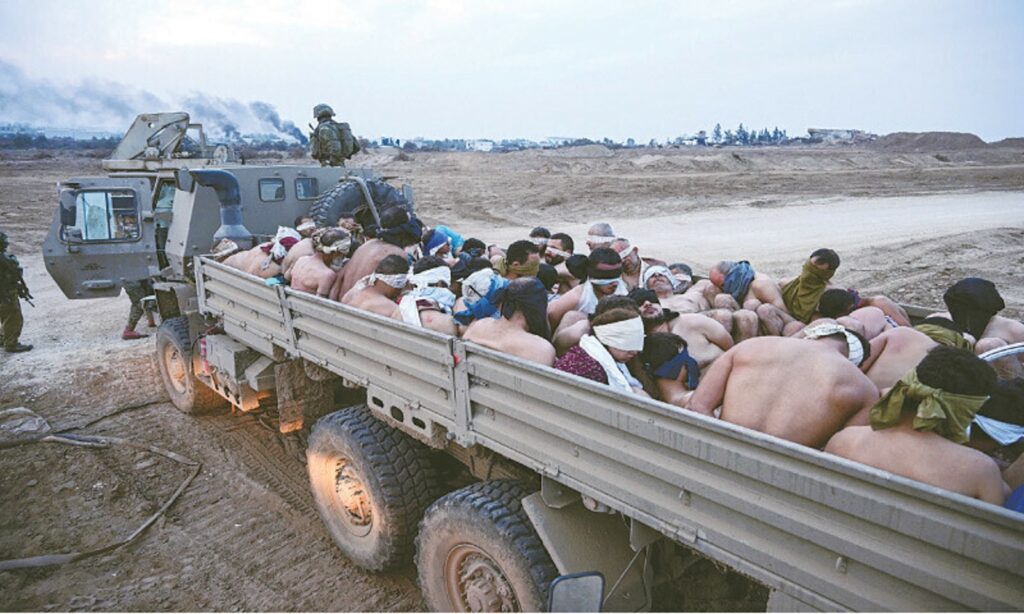
This graphic account comes not from the alleged victim but from the Israeli military’s own indictment against its soldiers, and seen by The Independent.
It is one of multiple stories of alleged torture against Palestinian detainees being held in Israel. Earlier this month, the UN accused Israeli forces of using sexual violence as a “method of war”.
“Sexual and gender-based violence, including rape and violence to the genitals, were committed either under explicit orders or with implicit encouragement by Israel’s top civilian and military leadership,” it claimed. Israel refused to cooperate with the UN and accused the report’s authors of bias.
These claims of brutality have spiralled since Hamas militants carried out the horrific attacks of 7 October, which left 1,200 Israelis dead and a further 250 held hostage. Despite a brief pause in the fighting, the last of the Israeli captives has not been released.
Israel, in its response to 7 October, has devastated the Gaza Strip with an estimated 50,000 dead and thousands more arrested, according to Palestinian officials.
Indictments, autopsies, and sworn testimony
With the Hamas-Israel ceasefire crumbling, the treatment and mass arrests of Palestinians in Israeli detention centres since the war erupted 18 months ago have been brought into the spotlight. Estimates show the number of Palestinian detainees has doubled to nearly 10,000. Many are held incommunicado, without charge, or have been released and sometimes rearrested.
The Independent has gathered indictments, autopsy reports, and sworn testimony from those caught up in detention.
Detainees describe brutality and allege forms of torture, including violent assault, sleep deprivation, sexual violence, and lack of access to medical care.
One autopsy report on a man who died in custody found excessive use of restraints and evidence of violent assault, ultimately leading to a bleed on the brain.
Just this week, Palestinian Oscar winner Hamdan Ballal says he was hit with the butt of a rifle by an Israeli soldier and detained for 24 hours in the West Bank.
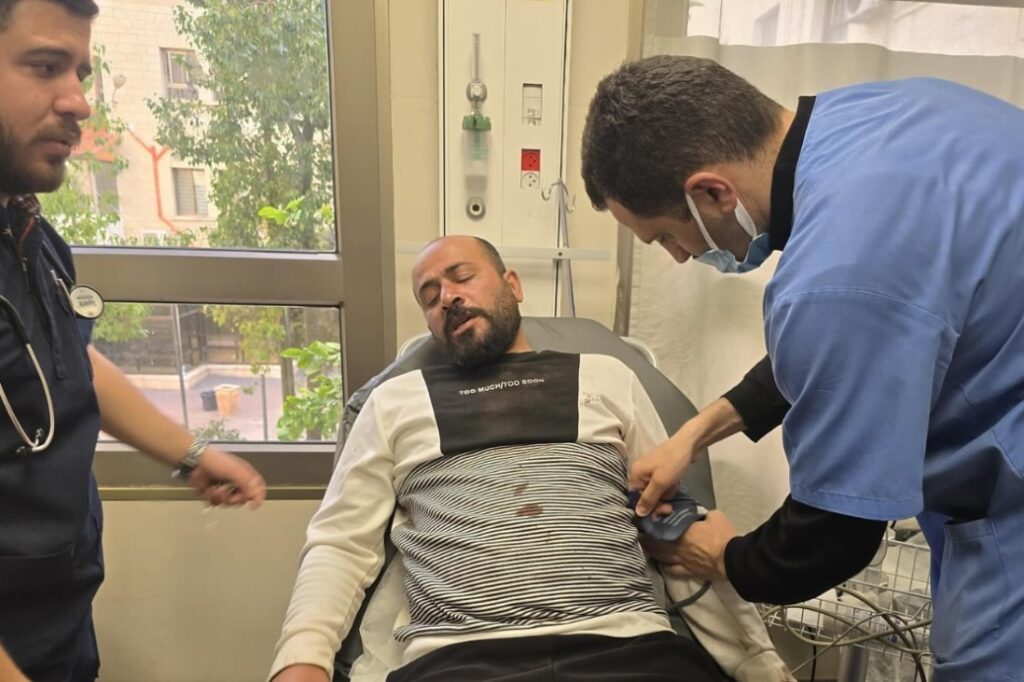
The Israeli military and prison service insist all personnel operate within the law – and that any instances of abuse are “exceptional”.
According to the indictment of the five soldiers, all have been charged with causing severe injury and abuse under aggravating circumstances.
In a statement, the Israeli military conceded that this and other incidents of alleged abuse are being investigated: “Additional investigations into allegations of detainee abuse are still ongoing.
“Any mistreatment of detainees, whether during detention or interrogation, is strictly prohibited and constitutes a violation of Israeli and international law and of IDF regulations.”
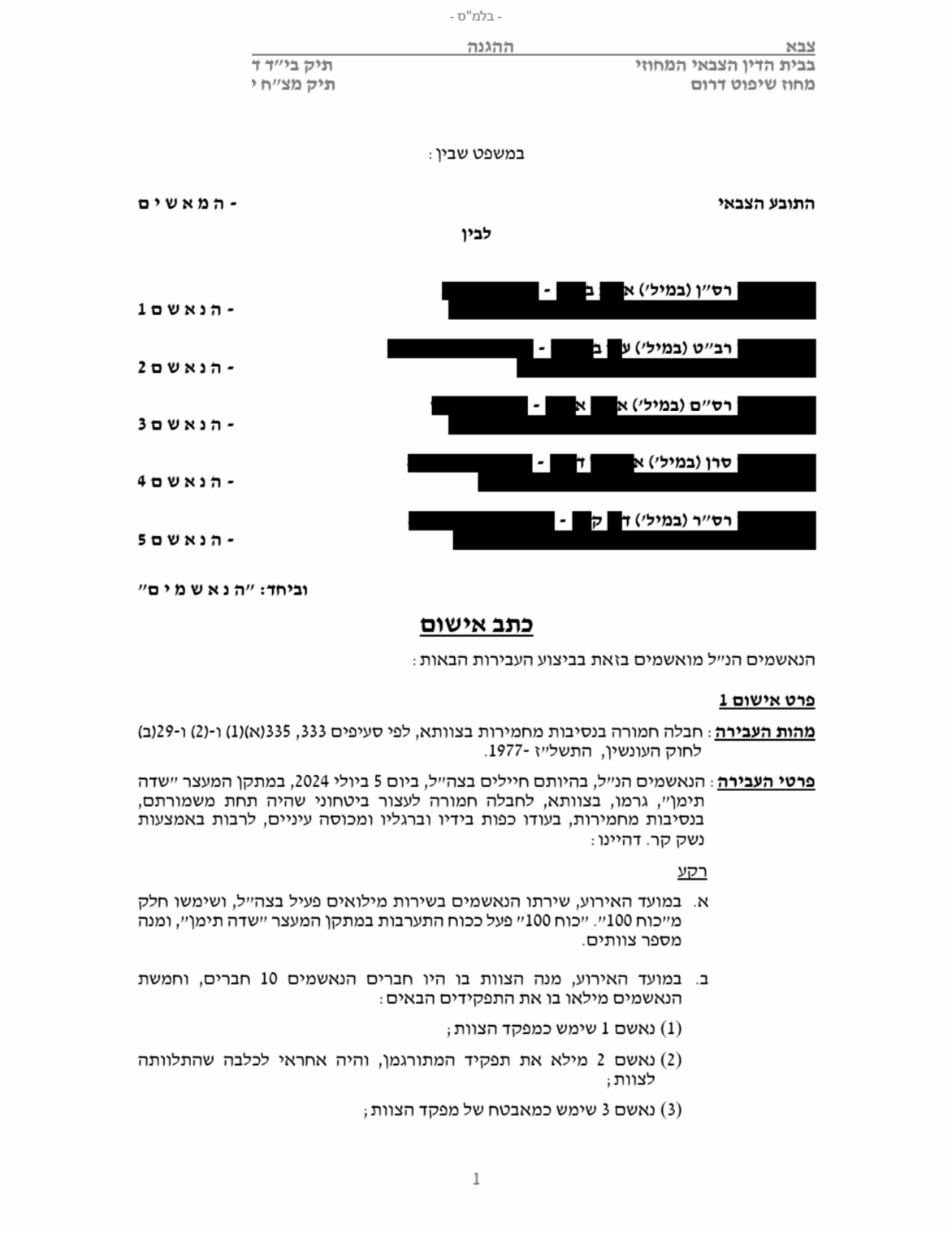
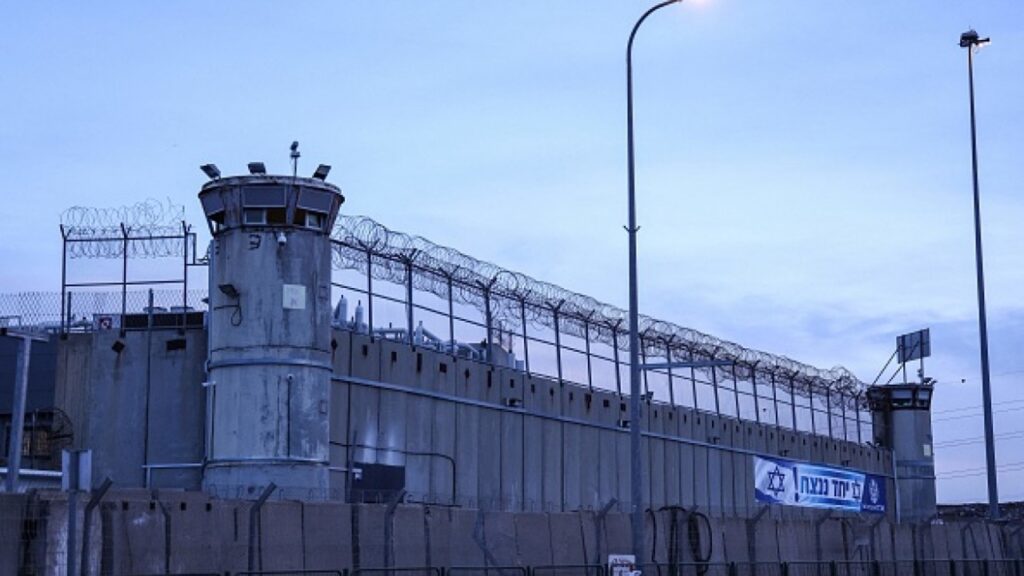
Excessive use of force, broken ribs, bleeding on the brain
The Independent has seen multiple reports on post-mortems written by Israeli medics for families of Palestinians who have died in custody.
Under Israeli law, families of the deceased can request that an independent doctor attend and verify the post-mortems.
Some of the Palestinian bodies were taken to Abu Kabir Forensic Institute in Tel Aviv for autopsies.
The reports detail the extent of the injuries suffered.
“Bruises were seen over the left chest, with broken ribs and chest bones underneath,” reads one about a Palestinian held in Megiddo prison, northern Israel, who died on 13 November 2023.
“External bruises were also seen on the back, buttocks, left arm and thigh, and right side of the head and neck.”
In another, a 45-year-old man who died in December 2024 while incarcerated at Kishon jail in northern Israel, bore “multiple signs of physical assault and excessive use of restraints were noted, likely causing traumatic intracranial bleeding”.
His right leg was swollen, and both wrists and ankles had marks of tight restraints, the report found.
“The fact that we see some signs of abuse means that this is probably the tip of the iceberg,” said one Israeli physician who has overseen multiple autopsies of detainees on behalf of the families.
He declined to give his name for security reasons but describes attending the post-mortem of a man in his thirties who died in detention in the West Bank in October 2023.
He had broken ribs and a lacerated spleen, “implying blunt force trauma”.
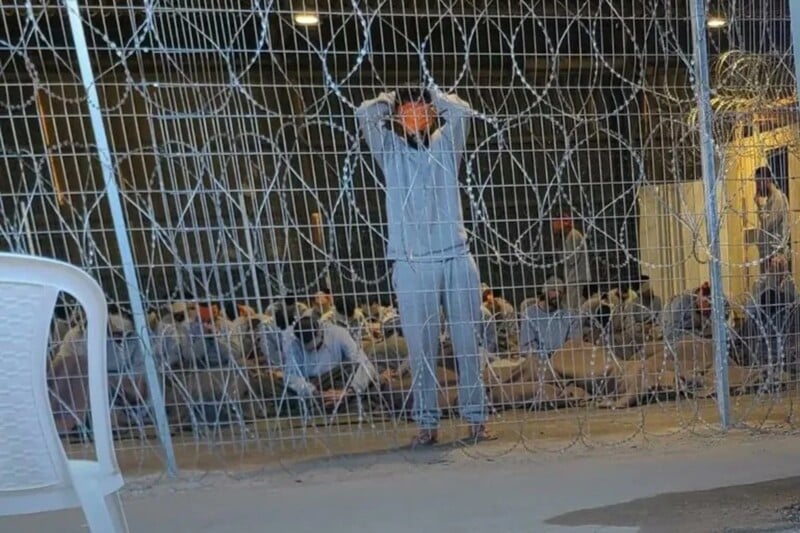
In late November, the same doctor oversaw the autopsy of another young man, from Tulkarem in the West Bank, who died after six days in interrogation. Again, his body bore signs of violence and multiple injuries, according to the report.
The Israeli military vehemently denies any wrongdoing: “The IDF [Israel Defence Forces] completely rejects allegations of systemic abuse of detainees in its detention facilities.
“The IDF operates in accordance with Israeli law and international law, ensuring the rights of detainees held in its detention facilities.”
Treatment at the hands of Israeli guards
Much of the alleged abuse zeroes in on two detention centres: a new military facility within the existing Ofer prison in the occupied West Bank, and Sde Teiman military base in southern Israel.
An Israeli guard at Sde Teiman gave anonymous testimony, which was leaked to The Independent, about the alleged pressure to be violent towards the Palestinians.

Describing the first time he and many other soldiers had ever met someone from Gaza, he says it manifested in the “attitude of ‘yes, they need to be beaten, it must be done’.
“We began looking for opportunities to do so,” he adds.
The guard says when he spoke out against beating up a Palestinian inmate being interrogated, he was told by a fellow soldier: “Shut up, you leftist, these are Gazans, these are terrorists, what’s wrong with you?”
“We handcuffed their hands to the fence above their heads so that they physically couldn’t take them off,” he says. “It was clear that people [soldiers] were really looking forward to doing these things. We punished them, yes. We yelled at them too.”
In Sde Teiman, Palestinian detainees describe Israeli soldiers playing endless, deafeningly loud rave music in a special detention room nicknamed the “disco”.
“The trance music is meant to psychologically weaken you before the investigation,” explains Mohamed R, 38, arrested at a checkpoint in northern Gaza as his family fled south in October and taken to Sde Teiman before spending 40 days in Ofer.
Ahmed A, 59, an engineer arrested in Khan Younis in February, taken to Sde Teiman and released a month later, claims he was left in a room with music blaring for two and a half nights.
“You had to lie on the floor,” he says. “You were not allowed to stand or go to the bathroom, and some people urinated on themselves.”
Mustafa H, 41, who was held in Sde Teiman after being arrested at a checkpoint in October while fleeing south, says: “Every metre you moved, they beat you, they hit you, they insulted you, they used dogs, teargas, and electric shock.”
He was finally released but has no idea about the fate of one of his brothers also detained: “Some people lost their hearing because blood came out of their ears because of the electric shocks.”
Again, Israel’s prison service (IPS) and military deny all accusations, with the IPS spokesperson adding it was “not aware of the claims described” and that the IPS “operates according to the provisions of the law”.
Medical care
One area of alleged abuse involves concerns about the alleged withholding of medical care from detainees.
The post-mortem report for the family of Mohammed al-Sabbar, who died in Ofer prison in February last year, shows his intestines nearly exploded.
The 20-year-old had Hirschsprung’s disease, which means the large intestine’s function is defective due to nerve function. It requires a very specific diet, enemas, and medicine.
He was denied this, according to the report, and in the end, the intestine was so enlarged it pressured the other stomach organs, damaging the function of the kidneys and lungs and stopping blood flow.
“The stomach CT clearly showed a humongous, large intestine (15cm) filled with faeces … with signs of necrosis,” the document reads.
It concluded his death could have been “prevented had his medical needs been given special consideration, and had he been given urgent medical assistance upon the appearance of early symptoms”.
The Israeli military denies this: “Detainees in need of medical treatment receive care from qualified medical personnel and, if necessary, are transferred to hospitals for further treatment.”
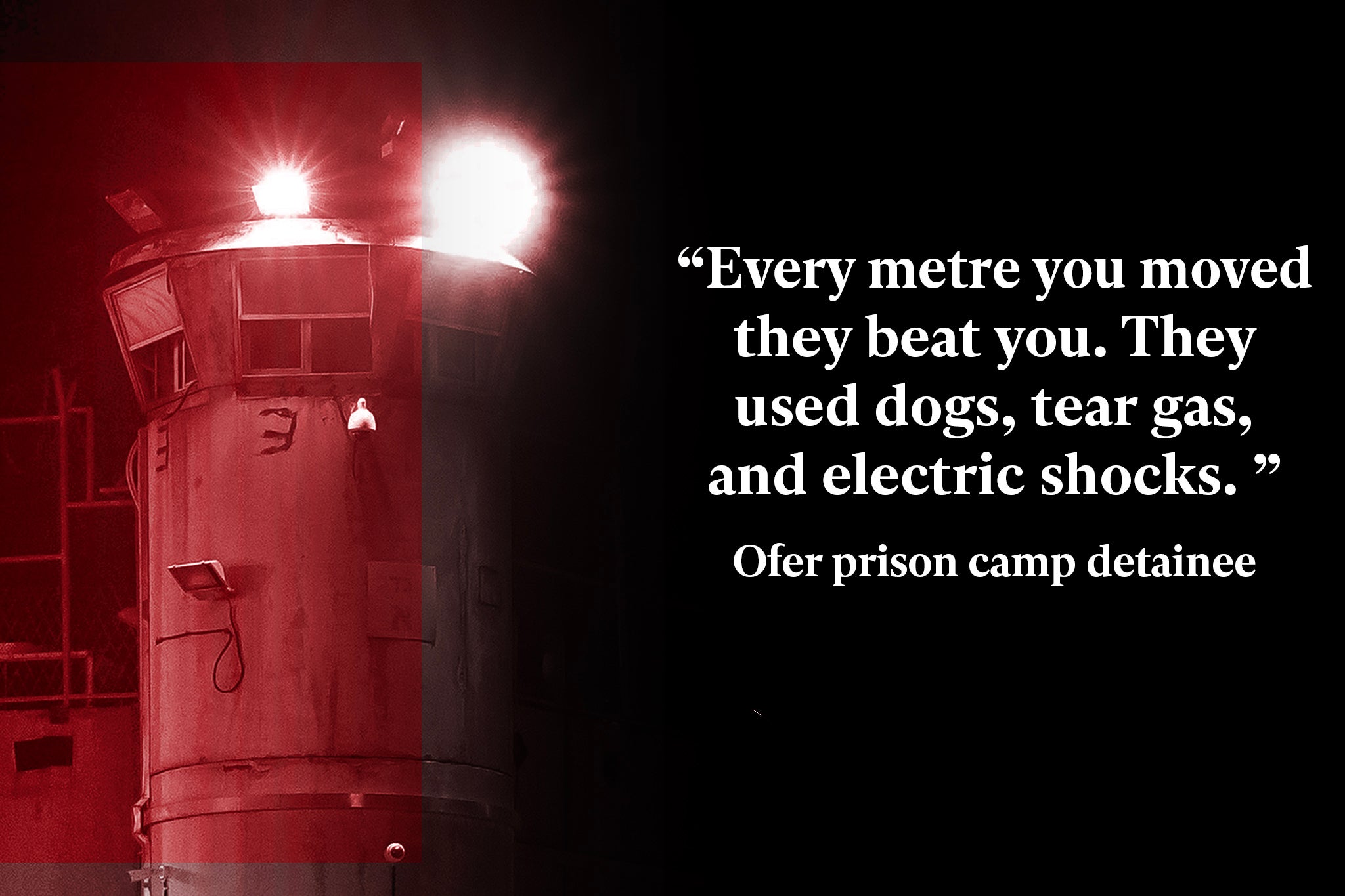
Healthcare workers
Among those held in detention are many of Gaza’s healthcare workers, including doctors, nurses, and paramedics.
Human rights group Physicians for Human Rights-Israel (PHRI) says there have been 250 healthcare workers detained, with more than 180 medics still behind bars.
One of the most prominent was Dr Adnan al-Bursh, 50, a renowned Palestinian surgeon, who died in Ofer prison last April.
Another is Dr Iyad Al-Rantisi, head of obstetrics and gynaecology at Kamal Adwan Hospital in northern Gaza, who died in November 2023 but whose death was only reported by an Israeli newspaper in June 2024.
An estimated 70 detainees have died in detention since 7 October, according to Naji Abbas, director of the prisoners’ department at PHRI.
“In the years since 1967, maybe 200 people have died in custody,” he says. “In one year, we are talking about more than 70 that we know about.” Among them, Palestinian rights groups say, is a 17-year-old who died in Megiddo prison this week in unclear circumstances.
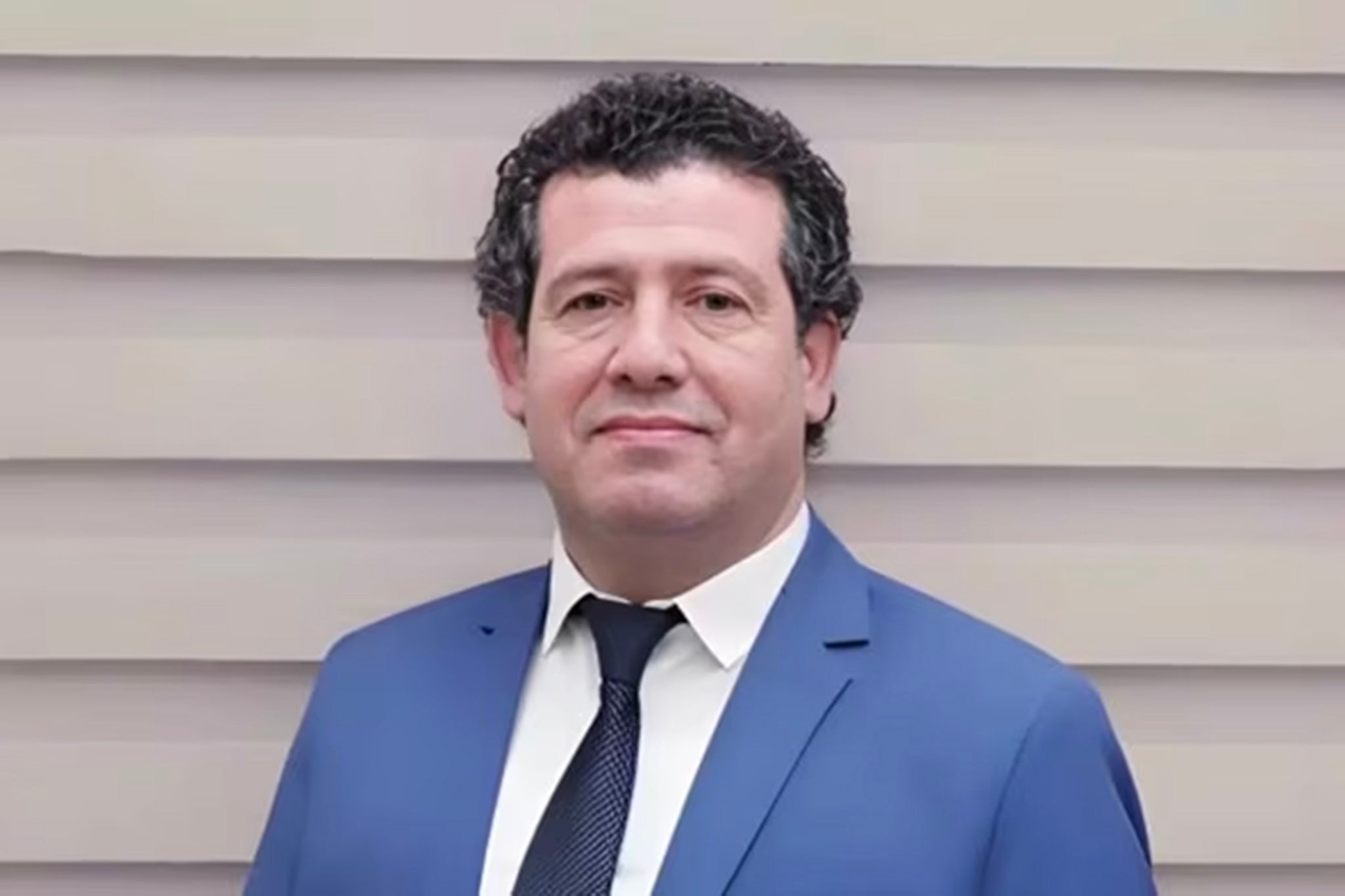
Unusually, Dr al-Bursh’s death was confirmed by the Israeli authorities, who said he had been held in Ofer for national security reasons – and that an investigation was underway.
His widow, Yasmine, says she pieced together information about her husband from released detainees who were his cellmates: “Before [Adnan’s] arrest, he weighed 90 kilograms, but his weight apparently dropped significantly to around 55 kg.
“He received very little food, just enough to keep him alive. He was reportedly handcuffed, sitting in a crouched position with his head on his knees.”
In response to the allegations, the Israeli military says: “The IDF operates in accordance with international law, and does not detain medical workers due to their work as such.
“It should be clarified that the detention of suspected persons involved in terrorist activities and operating as medical staff is carried out while ensuring, to the maximum extent possible, that medical services remain available to the residents of the area.”
Jessica Montell, from the Israeli charity Hamoked, which provides free legal aid to Palestinians, says at least 5,000 Palestinians are being held in administrative detention or under “unlawful combatant law”.
This means they can be held indefinitely, without charge, trial, or even access to the charges or evidence against them.
Jenna Abu Hasna, from Palestinian rights group Addameer, which monitors treatment of detainees, said Palestinian inmates have found themselves brought to court via video call, with a judge and without legal representation.
“Children as young as 15 years have described being on these video calls – with no lawyer present,” she said, echoing testimonies gathered by The Independent of three detainees in Sde Teiman and Ofer prison who described trial by Zoom call.
The International Committee of the Red Cross says it has not been granted access to Palestinian detainees since the start of the war, which is unprecedented.
A spokesperson adds: “This is the longest we have been without access to Israeli detention centres in decades.”
RELATED:
- Israeli torture: Urinating on Palestinian prisoners, burying them alive, and beating the sick
- Contrasting reality: Treatment of Israeli and Palestinian prisoners
- Palestinian Prisoners: Harrowing Reports Of Systemic Torture – 2 articles
- Palestinian prisoners endure ‘systematic torture’ before their release, monitor says
- Shocking testimony: Torture in Israeli prisons, “sexual assaults even using dogs”
- Palestinian prisoners endure ‘systematic torture’ before their release, monitor says


No comments:
Post a Comment